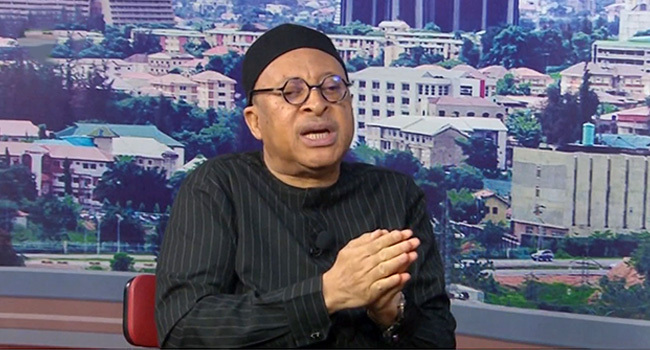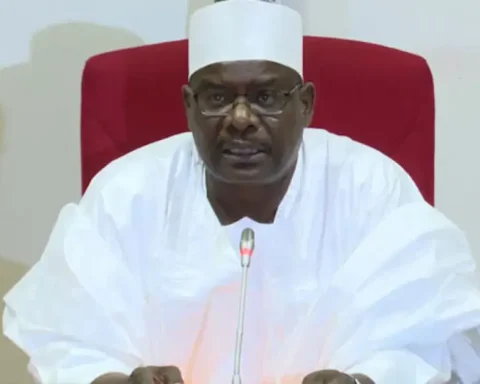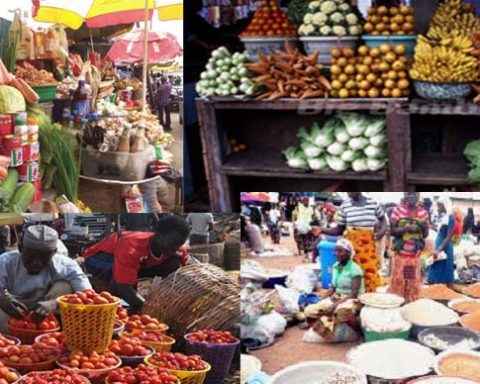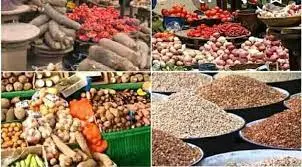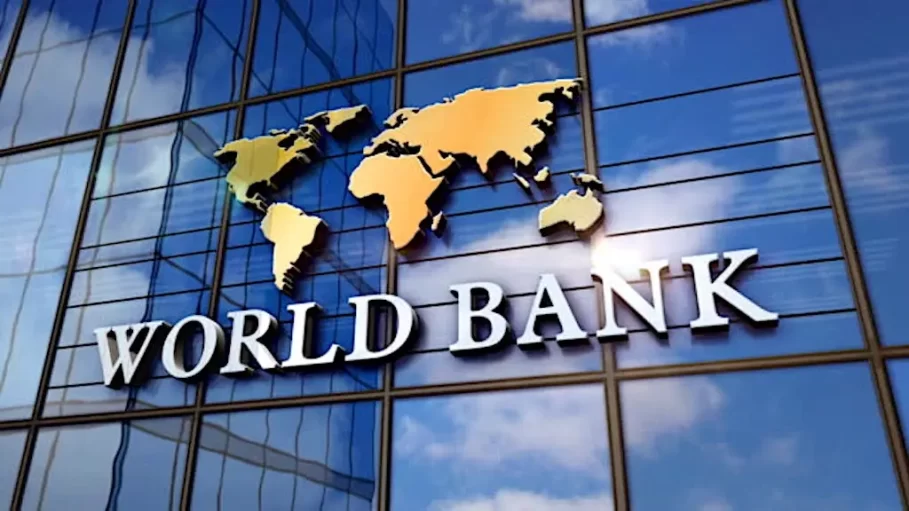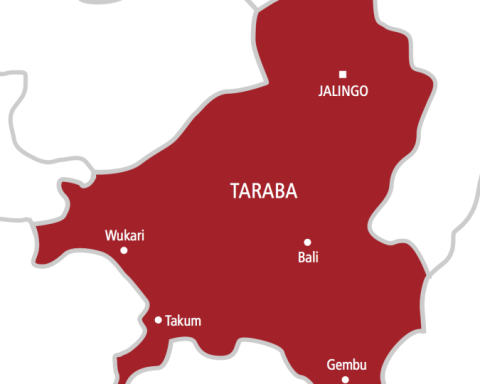The trauma of a faltering economy on many, resulting in suicides and dramatic protests, finally indicates our crisis of now is an existential one. Can politics now give way to truth and let thinking take front row in how we face our major policy challenge of the moment.
The desperation of removing duties on some food imports and turning to imports to feed the people is an approach-avoidance conflict that needs to be managed carefully lest it spell doom for the future. Why?
Join our WhatsApp ChannelRight now things are as bad as we have been pointing to and bad enough for a rush to food imports which may be an imperative of reality but is quite capable of damaging future capacity to produce and grow the economy.
Think of this. What killed the Cocoa, Palm produce and Groundnut exports in which Nigeria led the world at Independence? Poor trade policy manifested in exchange rates made Naira income for cash crop farmers in the early 1980s unappealing.
So the people left the farms to become messengers in NNPC and construction workers. When oil price volatility meant construction companies could not be paid on time or paid at all they retrenched workers. These laborers who were former farmers could not return to the farms. That’s how we became a monoculture economy. Academic analysis of that would say Dutch disease came with those farmers moving to the then more attractive none-tradable goods sector like construction.
Other sectors suffered atrophy and we became dependent on just Oil revenues. By the way Indonesia managed similar circumstances differently back then and benefitted from being more sensible.
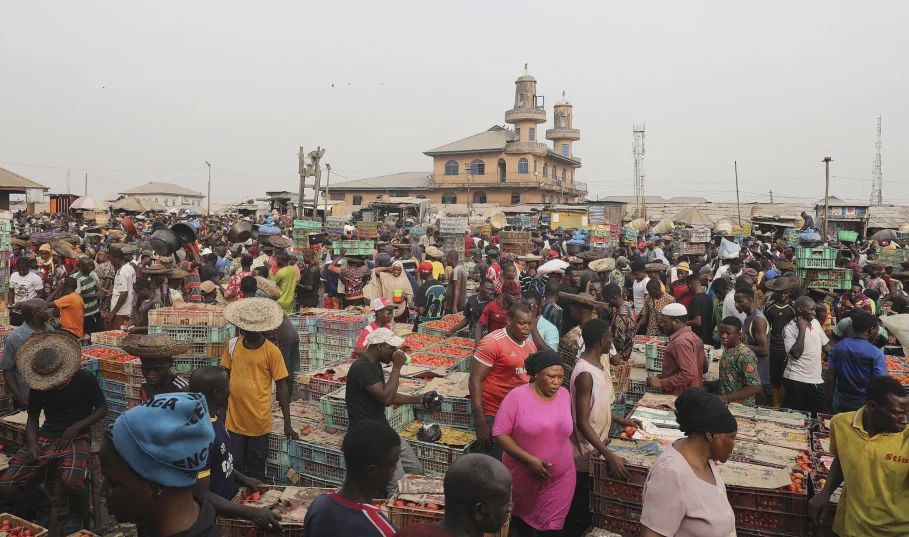
For several years the fear of herdsmen has kept many from going to farm. Even as they are losing their farming skills as a result of this long lay off we begin to consume the drug of food importation when we lack the foreign currency to pay for the imports. We will borrow to buy imported food. So we not only risk unsustainable food provision strategy but the further compounding of our looming debt crisis.
As the current account deficit grows with our importing more and not earning foreign currency we become more vulnerable to currency speculators and the Naira will go the way of the Zim dollar, Ask Zimbabweans. Or when George Soros went after Malaysian Ringit (RM) in 1997. So do we let our people starve because the famine we predicted is now real?
I do not write as a theorist or armchair critic but as an actual player.
READ ALSO: Nigerians Angry, Tinubu Not Tackling Food Scarcity – Ndume
I have lost whole farm output three times over the last decade to herders in Delta State. On one occasion the farm which bloomed such that the Uduaghan government PR documentary to showcase agriculture, by Lola Alakija, filmed it, was burnt by the herders after feeding their cattle fat. I took my losses with no insurance and moved from where Obasanjo farms now got allocated to a location around my hometown. Last year I sold Tomatoes and other vegetables as I will this year. Many who suffered loss as I did then did not try again.
I followed the politics of the strategic grains reserve and knew they were a joke and shared same with Prof. Murtala Sagagi who was assisting then Minister of Agriculture Sani Nanono. The bright economist was so frustrated, he quit the Advisor job.
I tried a market response to what was a beckoning food, agricultural export and value chain development from our factor endowments crises by designing an integrated produce city.
The concept was to create an aggregation point where produce from several states could arrive into this Commodities Exchange with a preservation park that can be an alternative strategic reserve of the type they call licenced Warehouses in Turkey. The central market point there being the wholesale produce market that aggregates the produce from these farmers saving them much of the 60 percent post harvest loss of their effort. Added to the concept was an Industrial park where some added value to the produce could take place. That rounded up the IPC value intervention. But corruption meant we were proceeding from our savings as reckless disbursement of monies to grow the sector went to cronies. Millions of Naira in business plans failed to produce the loans or development support agency grants.
READ ALSO: Why Borno, Adamawa, Kaduna, Others Risk Severe Food Crisis – World Bank
I knew this day of food shortages was coming and hoped my commercial response could add social value but alas the day had come before our efforts got the needed traction. I can either live in the selfish mode that I can at least feed myself from my farm or be a citizen and broach the truth of the challenge I saw from afar.
So how do we solve the famine crisis that confronts us now without damaging the future?
In January I had suggested we create local armies, Forest Rangers to police fertile areas where legumes that are harvested in three months would be grown as a national emergency. The rangers would provide assurance of safety to farmers who will receive inputs as loans with incentives so that by now harvesting would be taking place.
In addition to this support to local farmers I proposed an Operation Feed the Nation (OFN) type scheme where young graduate farmers would get one hectare each with input loans and a farm management company provide extension support with training in new farm methods.
Had good judgment moved us in this direction we could have averted the emerging emergency. If we throw our gates wide open to imports now it will take our Asian friends little time to dump produce in a way that we may never recover.
Now that our hardness of hearing has brought us here the option may be to have a controlled opening up to ease the pressure and move rapidly to sensible industrial policy to stimulate agriculture for food security and the value added exports in value chains in which we aim to be dominant players.
In all this the biggest problem is corruption.
In a soon to to published State of the Motherland report the new tribe collating work of its policy cohort, health care, infrastructure, public accountability and Ubuntu cohorts deepens the conversation on how to deal with the grandmother of cripplers of progress in Nigeria, corruption. Prescriptions there may include how to dismantle and rework our most corrupt institutions, the Customs Service, the FIRS, and the Police. It will contain insights into how corruption compounds the food crisis.
Consider how many food and produce export companies are filing for bankruptcy because of Customs activities at the ports; or how much is lost in a trailer bringing food from the Manila to Lagos because of police checkpoints and you see how values punish us as a people. Until we admit that values shape human progress and that we are in a collapse of culture we may journey from one panic policy to another as we increase poverty and deepen misery.
Patrick Okedinachi Utomi, Political Economist and Professor at the Lagos Business School is servant of the servants of the Chiefs of the New Tribe.


